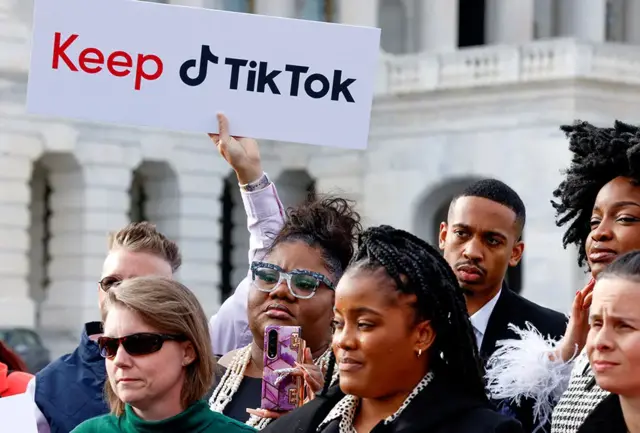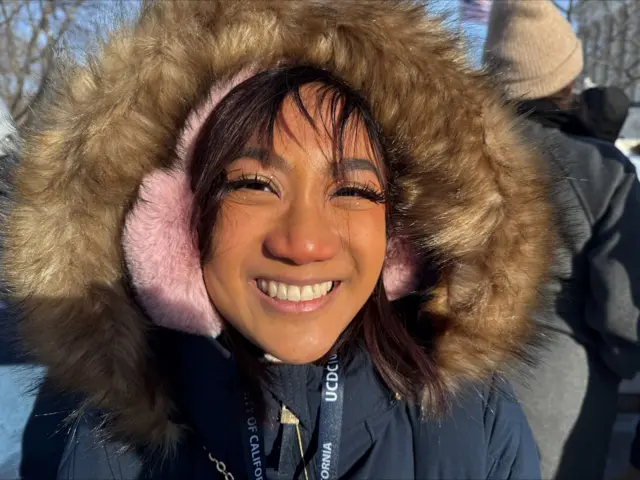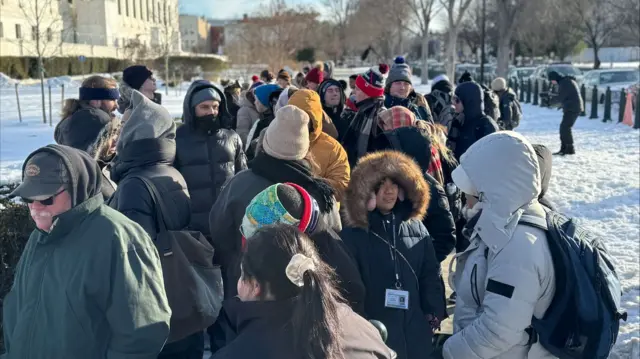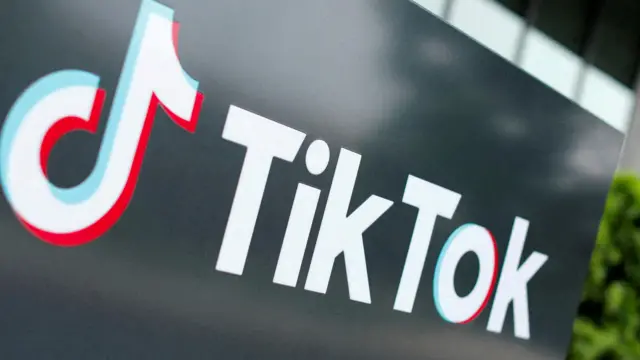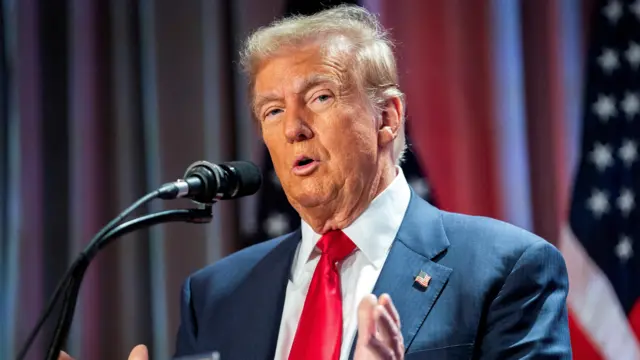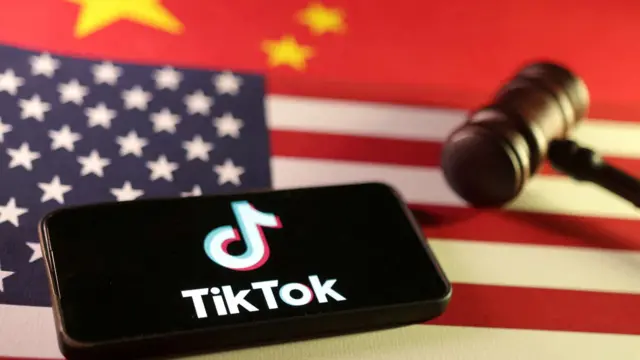TikTok's Supreme Court hearing closely watched by some American youthpublished at 15:15 GMT 10 January
Lily Jamali
North America Technology Correspondent, reporting from the hearing
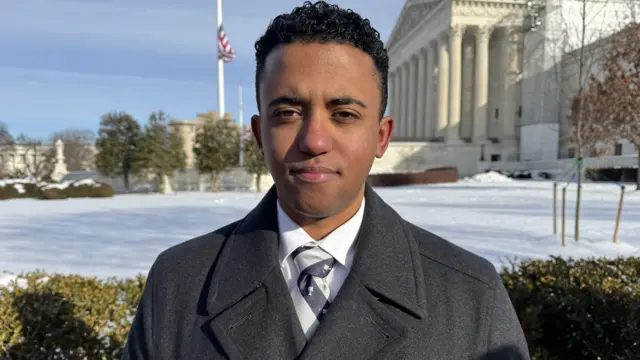
Tyler Jacobs
Tyler Jacobs, a 20-year-old Congressional intern, says he does not use Tik Tok.
"I used to be on it for a long time, and I decided to get off all social media a short time ago," he says, mostly to reduce distractions and to limit the mental health impacts associated with increased screen time.
Jacob, who is in line with many others his age outside the Supreme Court ahead of Friday's hearing, says he believes TikTok should be banned for national security reasons.
But he says he understands both sides of the arguments being presented today, and that some do rely on the platform for their livelihoods.
"We grew up in a digital age with social media," Jacobs says of his generation. "It'll be interesting to see the reaction among youth on how this all turns out."
